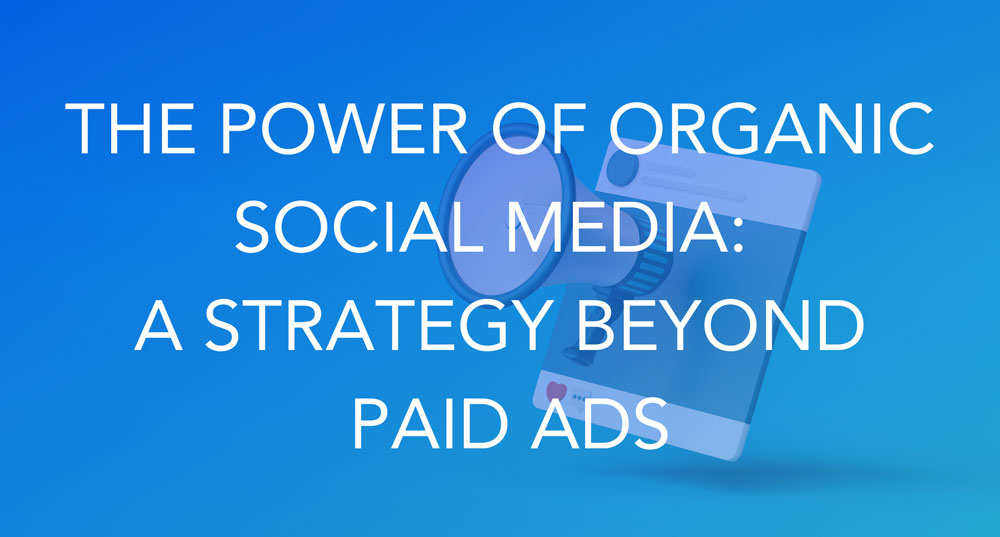In an era where digital marketing costs are skyrocketing and traditional advertising channels are becoming less effective, businesses must adapt to thrive. With rising advertising costs anticipated to continue throughout 2024—particularly due to the upcoming election—companies face a significant challenge. Cost per click (CPC) rates are expected to climb by 5-10%, pushing the average CPC to around $4.40-$4.60. This financial burden is compounded by “shrinkflation”, inflation and the move towards a cookie-less world. These factors all further complicates (and elevates) the cost of digital advertising.
The Question of Affordability in Paid Advertising
As we navigate through an this ever-evolving social media landscape, the financial strain on marketing budgets becomes more apparent. For many small businesses, spending $5,000 to $10,000 monthly on ads is unfeasible. This doesn’t include paying an agency to run the ads for them either. When considering the costs—potentially nearing $5 per click—it’s evident that an alternative approach is needed. This is where the strategic advantage of organic social media comes into play. Unlike paid advertising, organic social media allows businesses to connect directly with their audience without the hefty price tag of CPC. After all, there’s no guarantee that paid ads will reach their intended audience, but organic posts at least ensure visibility among followers.
The Complexity of Modern Paid Campaigns
Setting up ad campaigns on platforms like Meta has become increasingly complex. What was once touted as a straightforward task for small businesses has evolved into a costly endeavor requiring professional management. For instance, managing a 30-day ad campaign could involve a $1,500 agency fee plus $2,000 in ad spend, totaling $3,500 without even considering conversion rates. Phew.
Focusing on Retention Over Acquisition
In today’s challenging economic environment, brands are shifting focus from client and customer acquisition to retention. Effective retention is supported best through a robust social media strategy that emphasizes engagement. Organic interaction not only keeps your brand top of mind, but also fosters a human connection that can lead to greater loyalty and trust overtime.
Research Insights: The Influence of Organic Engagement
Recent studies, such as the #LetsTalkShop research conducted by Publicis Media, Twitter, and Bovitz Research, highlight the significant impact of organic social interactions on consumer behavior. This research found that organic social media engagement influences every stage of the buyer’s journey, from awareness, consideration through to decision-making. Moreover, this form of engagement appears to resonate particularly well with millennials and younger generations, who often value peer recommendations and authentic brand interactions over traditional advertising and reviews.
Real-World Applications of Organic Social Media
One practical example of the power of organic social media is a recent conversation I had on a podcast with two real estate agents who have been strategic about building their personal brands organically on social media. Why? Because they both found out early that their knowledge and expertise mixed with how they were able to relate to their audience proved to be the strategy that has lead to an extensive client roster. For example, a prospect might inquire about a home directly on the their social media page, and the the response could influence not only that potential buyer but also potential buyers who may witness the interaction in the comments.
The Strategic Imperative of Organic Social Media
The increasing costs of paid digital advertising and the shift towards a cookie-less online environment make organic social media not just a viable alternative, but a strategic imperative. By leveraging organic interactions and focusing on building genuine relationships with customers, businesses can enhance their brand visibility, improve customer loyalty, and achieve better marketing results at a significantly lower cost.
Organic social media is more than just a cost-effective strategy; it is a powerful tool that aligns with modern consumer behaviors and preferences, offering a direct line to engagement and long-term customer retention. In an increasingly competitive digital landscape, the businesses that harness the power of organic social connections are the ones most likely to thrive.

